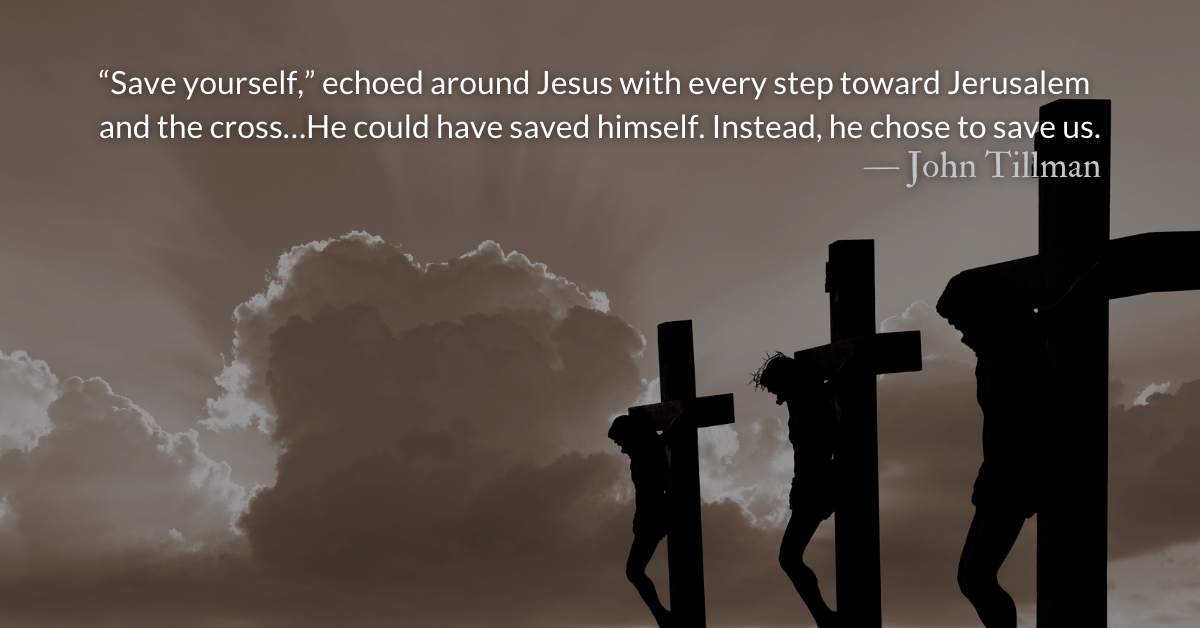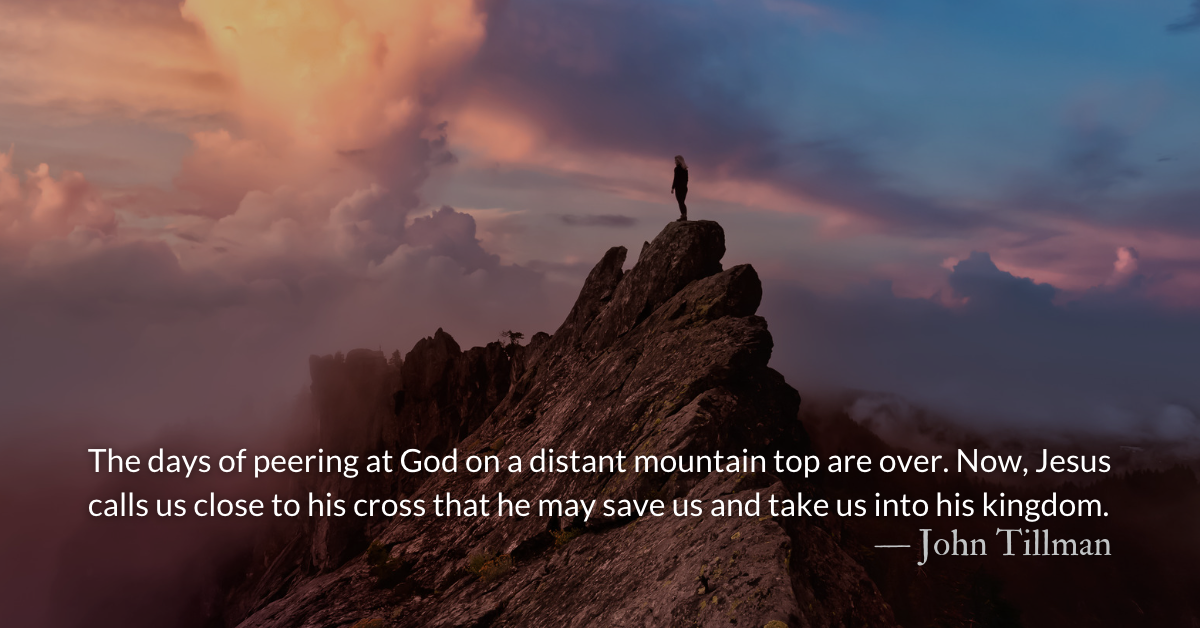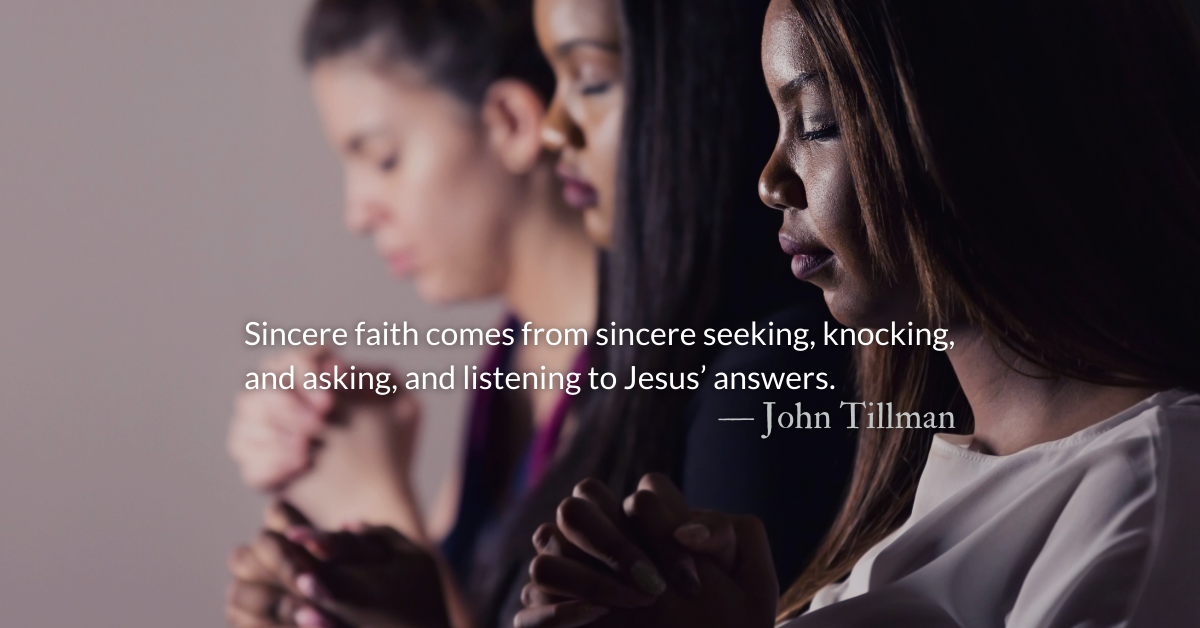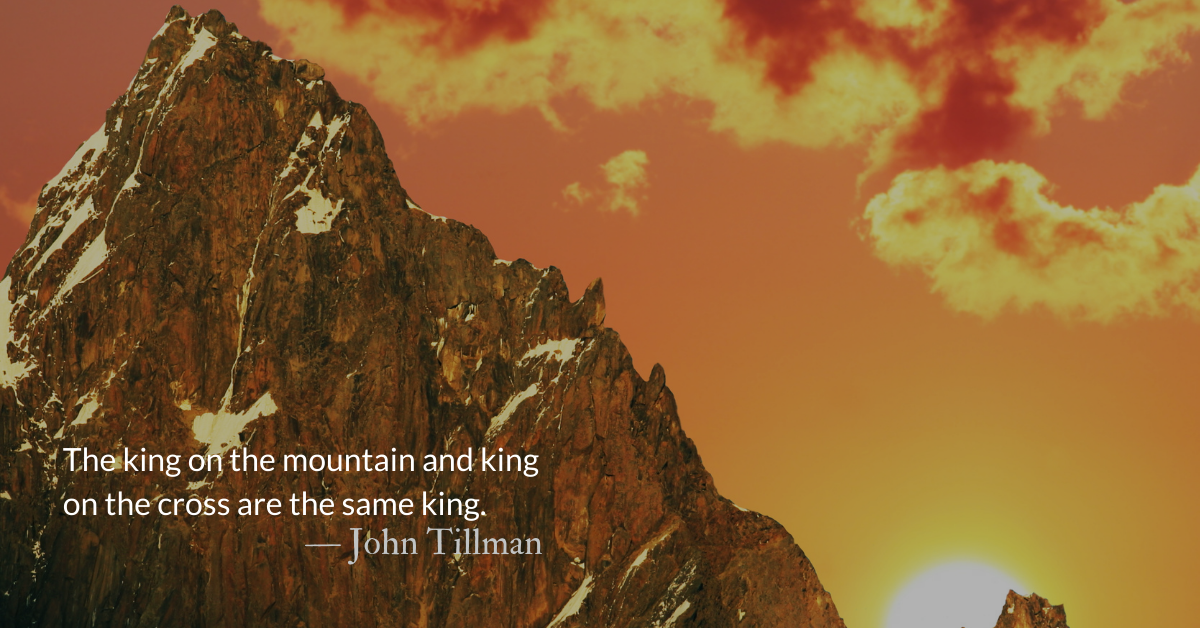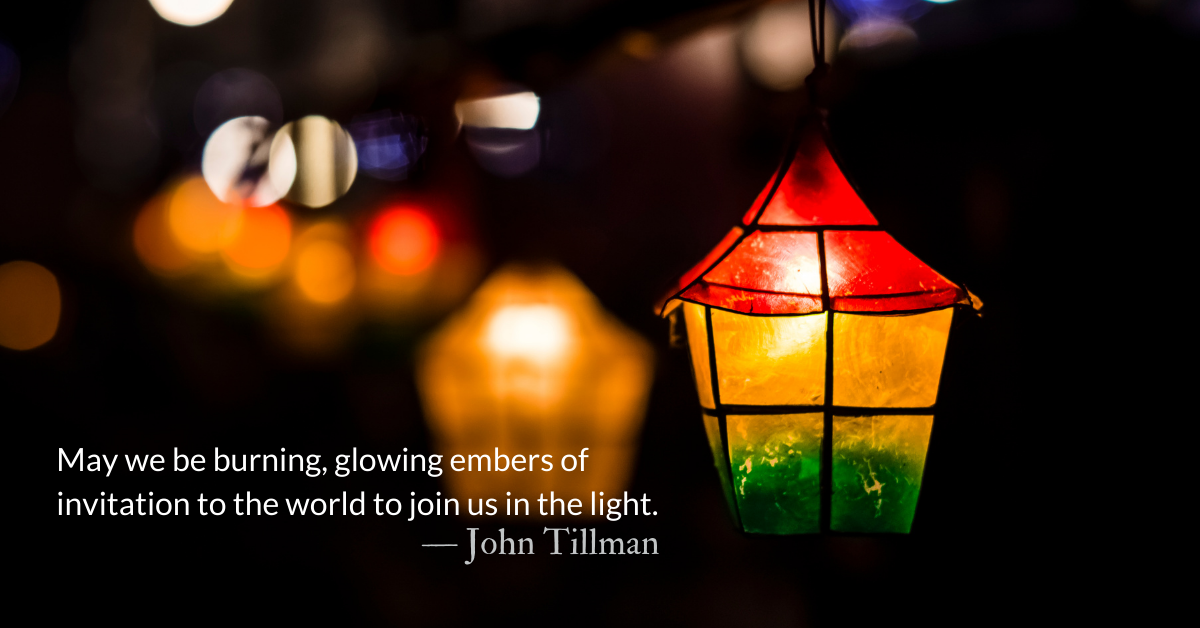Scripture Focus: Luke 23.35-39
35 The people stood watching, and the rulers even sneered at him. They said, “He saved others; let him save himself if he is God’s Messiah, the Chosen One.”
36 The soldiers also came up and mocked him. They offered him wine vinegar 37 and said, “If you are the king of the Jews, save yourself.”
38 There was a written notice above him, which read: THIS IS THE KING OF THE JEWS.
39 One of the criminals who hung there hurled insults at him: “Aren’t you the Messiah? Save yourself and us!”
Reflection: Save Yourself (And Us)
By John Tillman
“Save yourself!”
“Save yourself, Jesus!”
“Save yourself and us!”
“Save yourself,” echoed around Jesus with every step toward Jerusalem and the cross. Satan said it. Peter said it. Pilate said it. The religious leaders said it. The crowd said it. The soldiers said it. Even one of the criminals crucified with him said it.
The gospel writers make clear that the cross was not a tragedy or error in judgment. Jesus claimed the religious leaders couldn’t take his life, but that he would lay it down. He claimed angels would defend him if needed, and commanded Peter to abandon the sword. He claimed Pilate had no power over him, yet made no defense. He forgave the shouting crowd, the mocking religious leaders, and the violent soldiers, saying they didn’t comprehend their actions.
Jesus went to Jerusalem, the city that kills the prophets, on purpose. He challenged the powerful. He knew the outcome. Jesus chose the cross. The question we can’t escape is…why?
We live in a “save yourself” culture. We are expected to put ourselves first and save ourselves from everything. We must “bootstrap” our way to success. This is one reason Jesus is foolish (1 Corinthians 1.18) to our culture. He could have saved himself. Instead, he chose to save us.
There is a reason Paul preached, “Christ, and him crucified.” (1 Corinthians 1.22-23; 2.1-3) At the cross, something happened that changed everything.
“Something … happened on the cross itself, something of earth-shattering meaning and implication, something as a result of which the world was now a different place. A revolution had been launched.” — NT Wright (The Day the Revolution Began)
The second criminal chastised his co-conspirator, saying, “Don’t you fear God?” He understood that Jesus was not being executed by an empire but was inaugurating a kingdom. “Remember me,” the criminal said. He was probably a rebel against Rome but joined a better rebellion through Jesus.
Like the criminal, we are already condemned. This world is already taking our life. But no matter where you are today or what sins you are condemned for, the cross means you can be saved.
Jesus makes the offer to all. His offer is effectual and real. Like the criminals immobilized on the cross, we can’t do anything to earn what Christ offers. We simply accept or reject his revolutionary kingdom. You can’t save yourself but Jesus saves all those who respond.
Divine Hours Prayer: The Small Verse
Today if you shall hear His voice, harden not your heart.
– From The Divine Hours: Prayers for Springtime by Phyllis Tickle.
Today’s Reading
Leviticus 1(Listen 2:37)
Luke 23(Listen 6:39)
Read More about The Ram and the Cornerstone
Jesus entered Jerusalem like Isaac’s ram on the mountaintop. He rammed his head into the thorns to ensure there would be no escape.
Read More about Demands of Faith
The rebel’s “salvation prayer” is special because it shows us how deep the grace of Jesus reaches.

